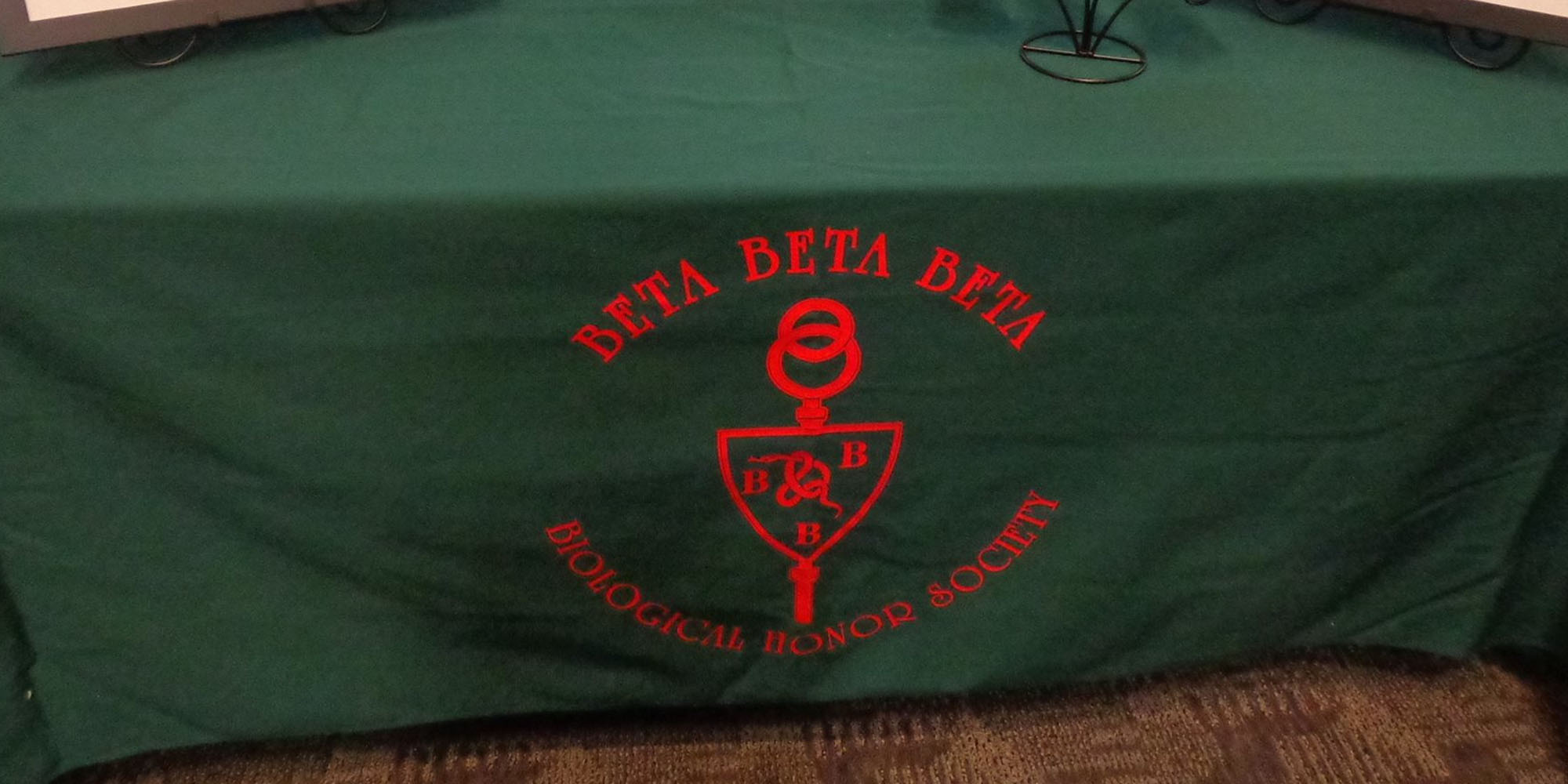There’s a new honor society on campus for students in the biological sciences. On December 2, 2014, national representatives of Beta Beta Beta National Biological Honor Society were on campus to install the Chi Delta Epsilon Chapter and induct 85 undergraduate students.
The students represent three majors within three departments in the College of Science – biology, biochemistry and behavioral neuroscience. Dr. AnnMarie Bettica, District Director for the Northeast Region of TriBeta, presided over the installation.
The officers for the inaugural year are:
- Co-Presidents: Katherine Chrunyk and Giana Manzi
- Vice-President: Taylor Bostonian
- Secretary: Megan Cavanaugh
- Treasurer: Christina Gallo
- Historian: Bianca Mills
- Program Chair: Nivedha Kumar
- Program Committee: Jasmine Labuda and Sean Yao
- External Relations: Gabrielle Fontes
- Faculty Advisor: Dr. MarySusan Potts-Santone
TriBeta is an undergraduate-focused national honor society established in 1922 with more than 670 chapters and 200,000 biologists inducted across the United States and Puerto Rico. Beta Beta Beta Biological Honor Society has as its express purpose to: 1) promote scholarship in the biological sciences; 2) promote the dissemination of biological knowledge; and 3) to encourage research.
Students are encouraged to attend district conventions and the biennial national convention and publish scientific papers in the TriBeta Society’s quarterly journal BIOS. Students may publish undergraduate work with sole authorship in this journal and all manuscripts undergo the standard scientific procedure of review, editorial acceptance or rejection, and technical editing.
In addition, Beta Beta Beta Research Awards help support a variety of undergraduate projects across its membership. A chapter of TriBeta on the Northeastern campus will: 1) enhance the recognition of excellence among students in the biological sciences; 2) further student research and career development; and 3) enrich our campus biological community.

